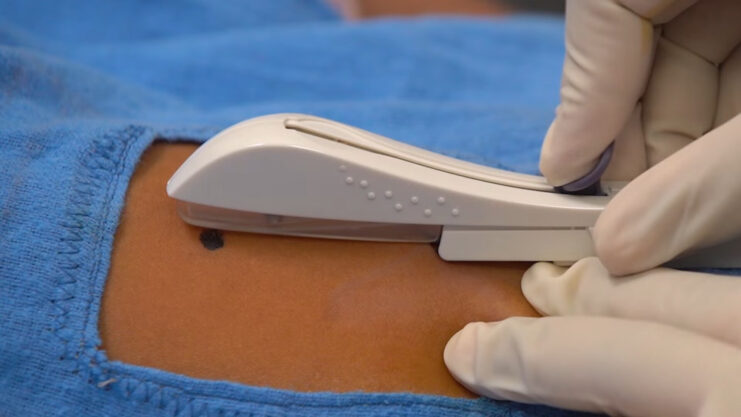Navigating the world of contraception post-delivery can be a maze of questions and concerns. With the body undergoing significant changes and the return of fertility, it’s essential to be informed and prepared. This guide delves deep into the subject, offering valuable insights and answers to the most pressing questions.
After childbirth, the body embarks on a journey of readjustment. This includes the return of menstrual cycles and, consequently, fertility. It’s crucial to understand when and how fertility returns to make informed contraceptive choices.
When Does Fertility Return?
After giving birth, the timeline for fertility’s return varies among women. If you’re not planning on expanding your family just yet, it’s vital not to take chances. Hence, deciding on a contraceptive method soon after childbirth or once you resume sexual activity is advisable.
- For those who opt for formula-feeding, menstruation can return anytime between 5 weeks to three months post-delivery. This means you could be fertile as early as three weeks after childbirth. Remember, ovulation precedes menstruation, so contraception should ideally start from 3 weeks postpartum if you’re sexually active.
- For breastfeeding mothers, the hormone prolactin, responsible for milk production, usually suppresses ovulation. However, even exclusive breastfeeding doesn’t guarantee the absence of ovulation. Thus, there’s still a possibility of pregnancy.
Breastfeeding: A Natural Contraceptive?

Breastfeeding, especially continuous and exclusive, can act as a natural contraceptive method, known as LAM (Lactational amenorrhea method). This method relies on hormonal changes during exclusive breastfeeding that suppress ovulation, reducing the chances of pregnancy.
- However, it’s essential to note that while breastfeeding can be up to 98% effective as a contraceptive in the first six months post-delivery, certain criteria must be met:
- Exclusive breastfeeding without any other food substitutes.
- Absence of menstruation since childbirth.
- The baby is less than 6 months old.
After the six-month mark, it’s recommended to opt for another contraceptive method. Also, if formula milk supplements breastfeeding, the chances of pregnancy increase.
Exploring Contraceptive Methods Post-Delivery
Introduction: The world of contraception offers a plethora of options. Depending on various factors like breastfeeding, past medical history, and personal preferences, one can choose the most suitable method.
Contraception for Breastfeeding Mothers

Breastfeeding mothers need to be cautious about the contraceptive methods they choose, especially if they contain oestrogen, which might affect the quality and quantity of breast milk.
- Barrier Methods: These include condoms, which prevent sperm from meeting an egg.
- Progesterone-only Methods: These are ideal for breastfeeding mothers and include:
- Mini-pills like Micronor, Cerazette, and Cerelle.
- Implants such as Implanon or Nexplanon.
- Injections like Depo-Provera.
- Intrauterine devices like Mirena or Skyla.
Emergency Contraception Post-Delivery

Unprotected intercourse post-delivery might raise concerns. Fortunately, emergency contraceptive pills (ECPs) are available.
- ECPs can be used without harming the baby or affecting breast milk quality, even if you’re breastfeeding.
- It’s always advisable to consult with a healthcare professional before opting for any emergency contraceptive method.
FAQ
Can I use an intrauterine device (IUD) after giving birth?
Yes, an IUD can be inserted shortly after vaginal or cesarean delivery. However, it’s essential to consult with your healthcare provider about the best timing and type of IUD suitable for you, especially if you’re breastfeeding.
How soon can I start using contraceptive methods after a cesarean section?
The timeline can vary based on the method and individual circumstances. Generally, barrier methods like condoms can be used immediately. Hormonal methods should be discussed with your healthcare provider, especially if you’re breastfeeding.
Are there any natural methods of contraception post-delivery?
Apart from LAM (Lactational amenorrhea method) mentioned earlier, other natural methods include tracking your menstrual cycle and avoiding intercourse on fertile days. However, these methods require careful monitoring and may not be as reliable as other contraceptive methods.
Can I use a diaphragm or cervical cap after delivery?
Yes, but it’s essential to get refitted after childbirth as the size and shape of the cervix and vagina might change post-delivery. It’s advisable to wait for at least six weeks postpartum before getting refitted.
Are there any side effects of using hormonal contraceptives post-delivery?
Side effects can vary based on the method and individual reactions. Common side effects include mood changes, weight gain, and spotting between periods. It’s crucial to discuss potential side effects with your healthcare provider.
How does weight gain after pregnancy impact contraceptive choices?
Weight can influence the effectiveness of certain contraceptives. For instance, emergency contraceptive pills might be less effective in women over a certain weight. It’s essential to discuss your weight and contraceptive options with your healthcare provider.
In Conclusion
Introduction: Contraception post-delivery is a topic that requires attention and understanding. With the body undergoing numerous changes, it’s essential to make informed decisions to ensure the well-being of both the mother and the baby.
Every woman’s journey post-delivery is unique. While some might experience the return of fertility sooner, others might take longer. The key lies in understanding one’s body and seeking professional advice when in doubt.
- Regular check-ups and discussions with healthcare professionals can provide clarity.
- Personal preferences, combined with medical advice, can help in choosing the most suitable contraceptive method.
Childbirth is a transformative experience. As you navigate this new phase, remember to prioritize your well-being and make choices that align with your future plans.
- Embrace the changes, seek support, and stay informed.
- Your health and happiness are paramount, so take the time to understand and decide what’s best for you and your family.












